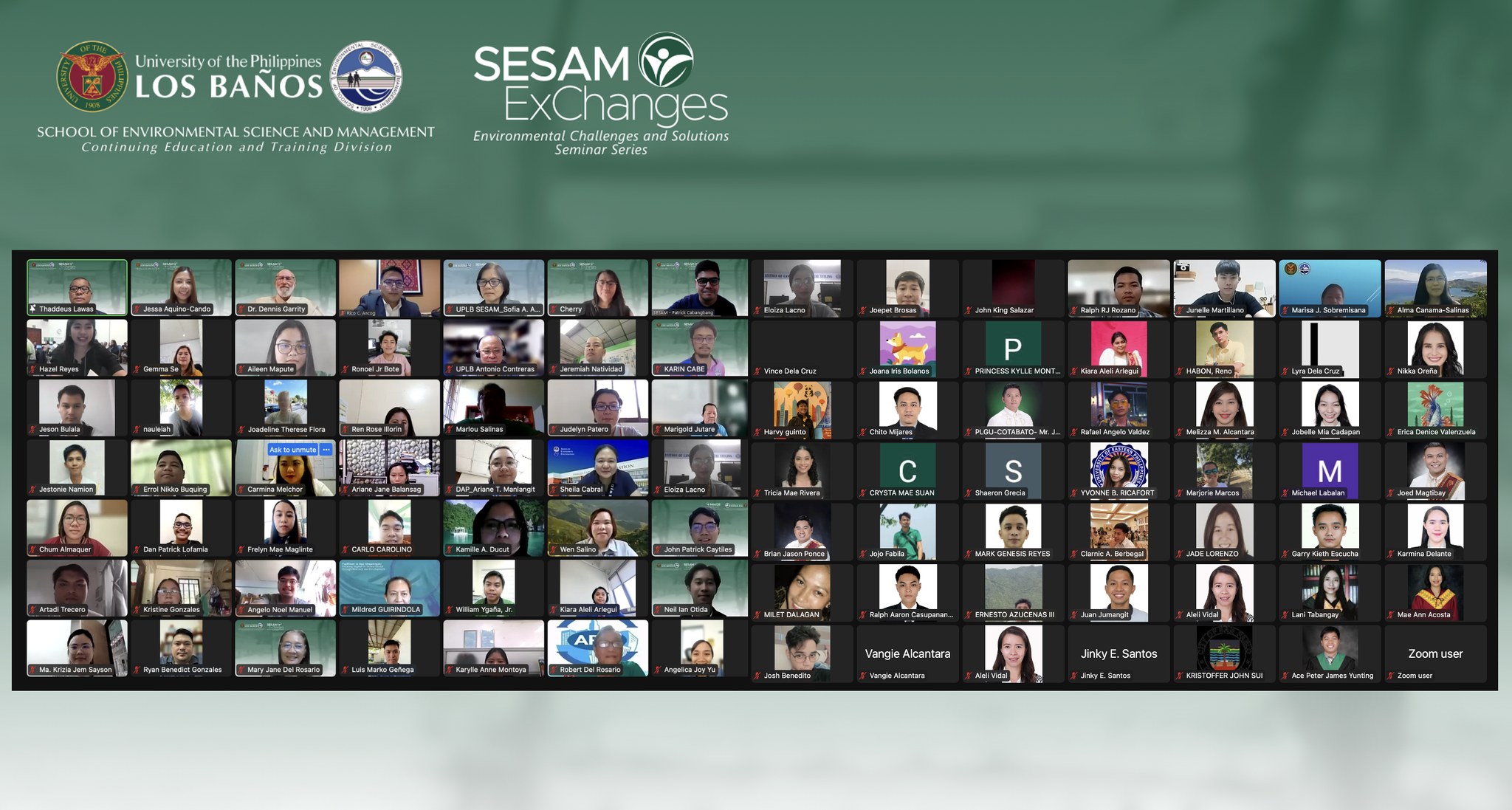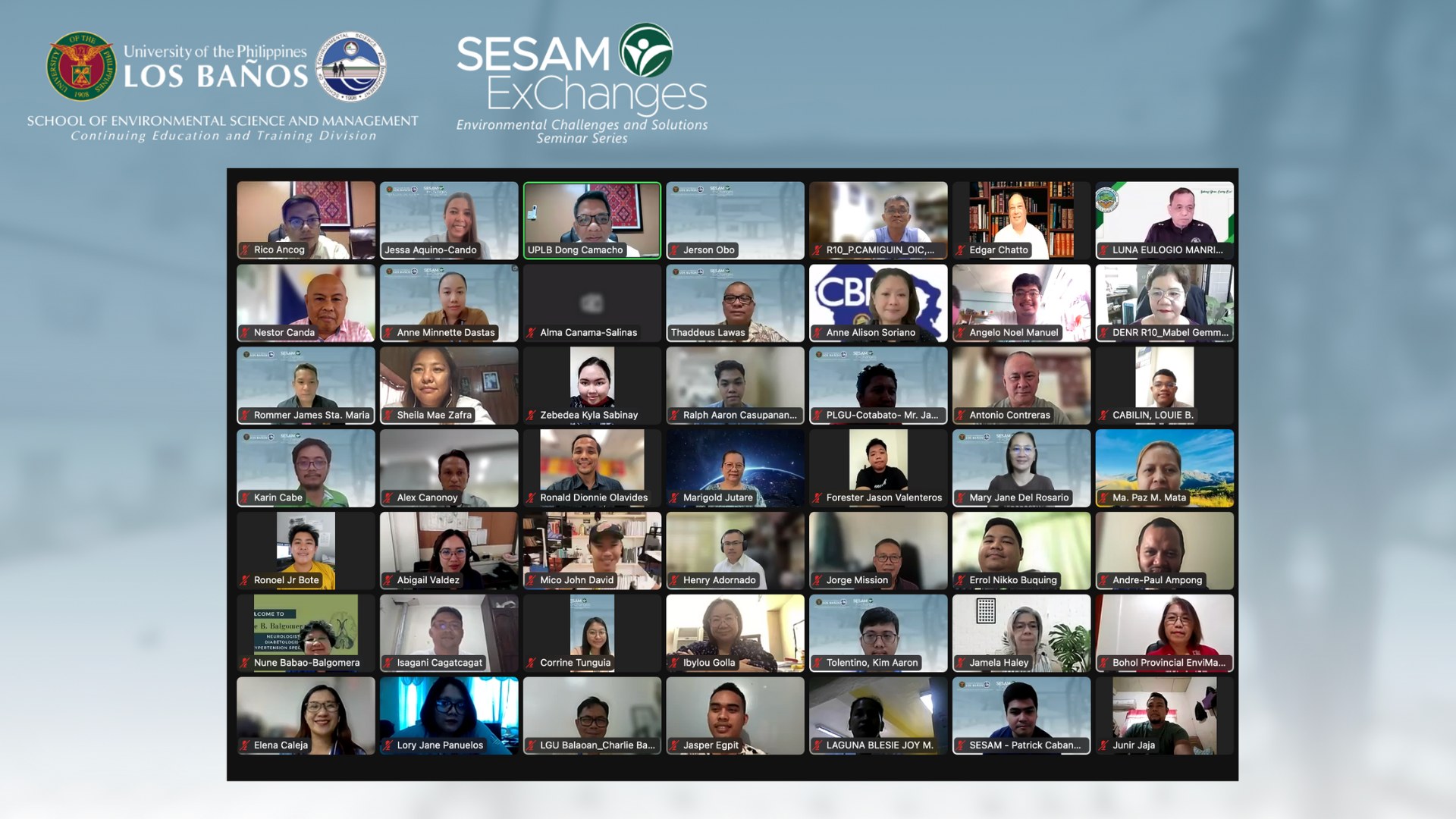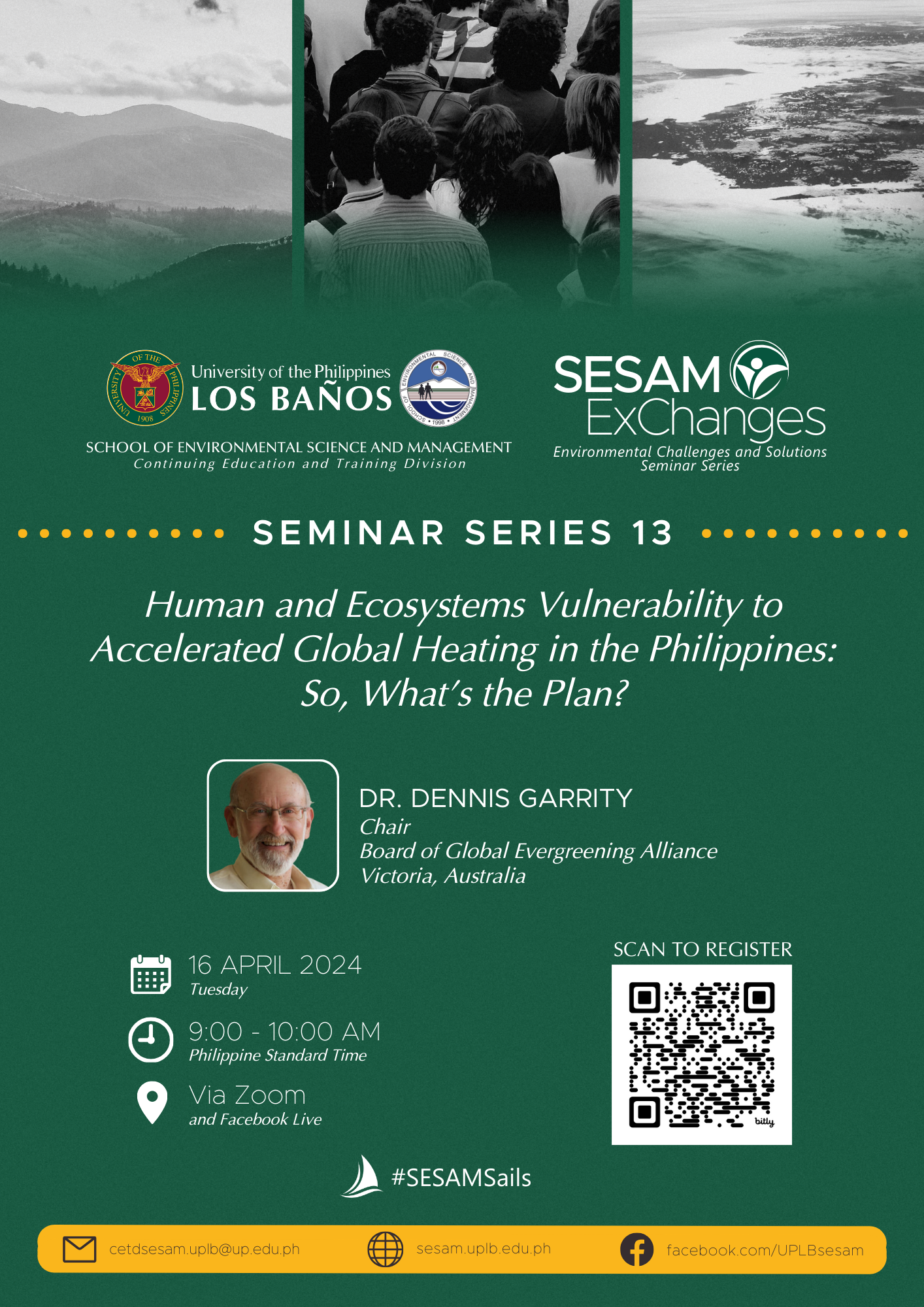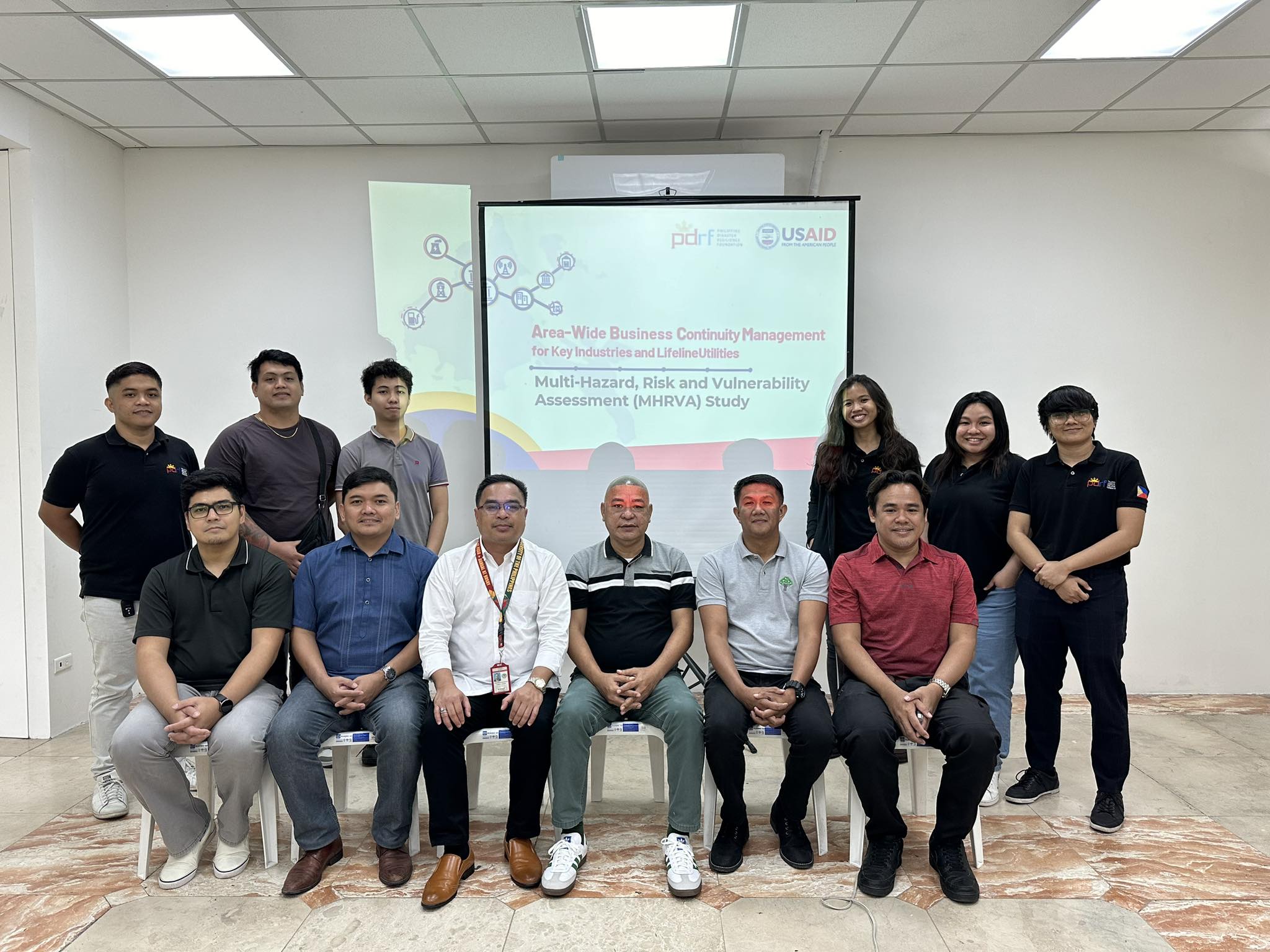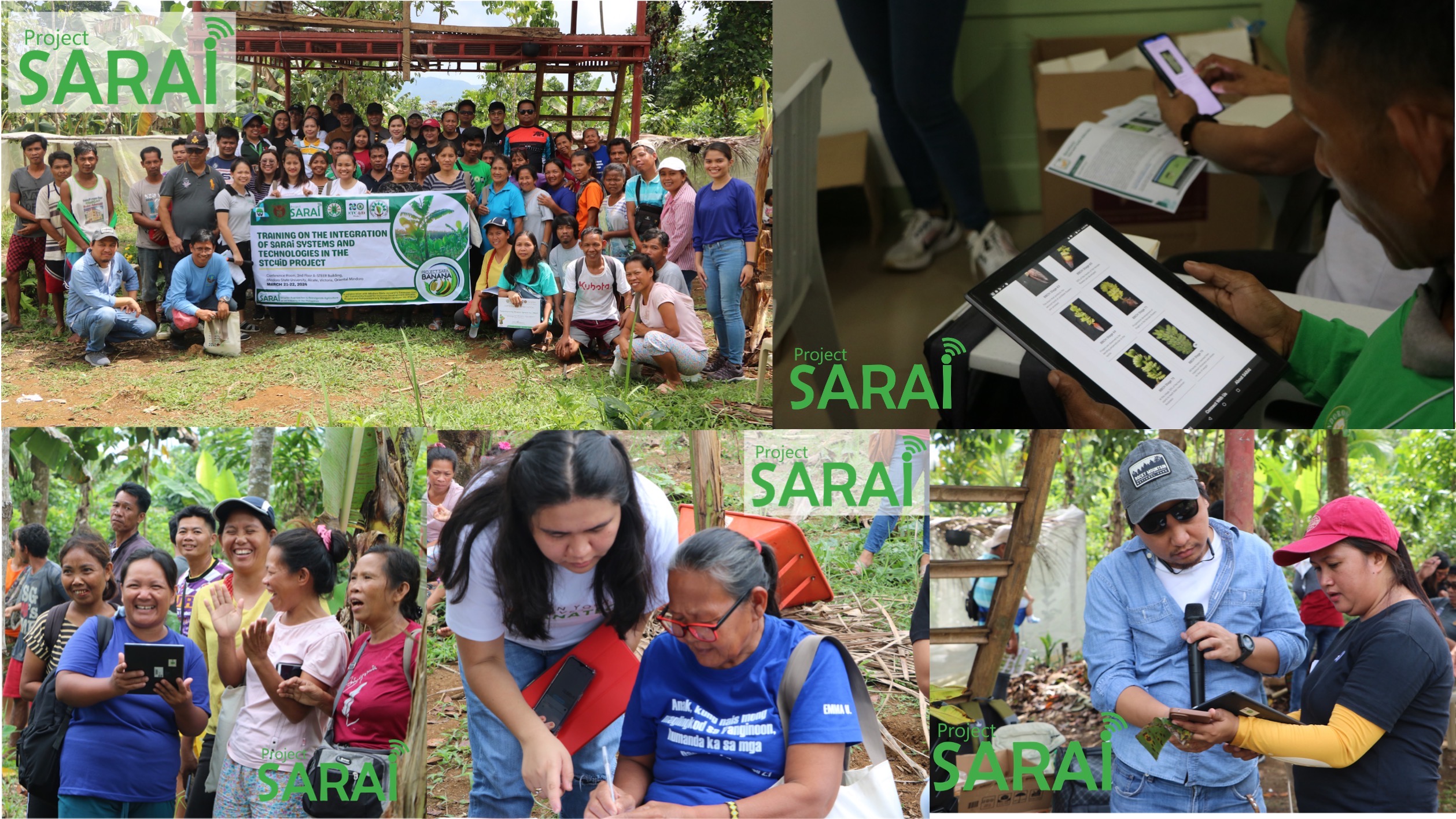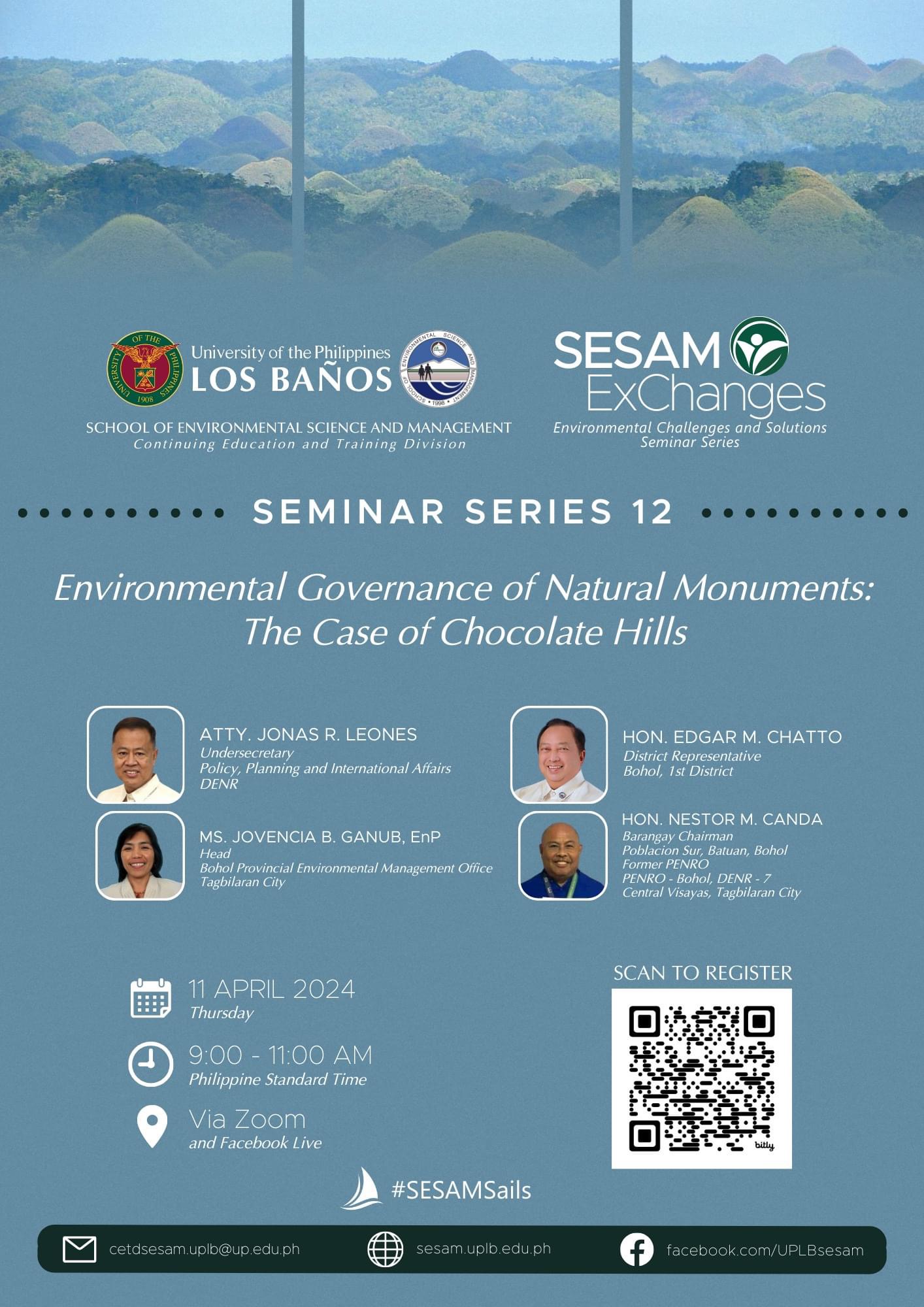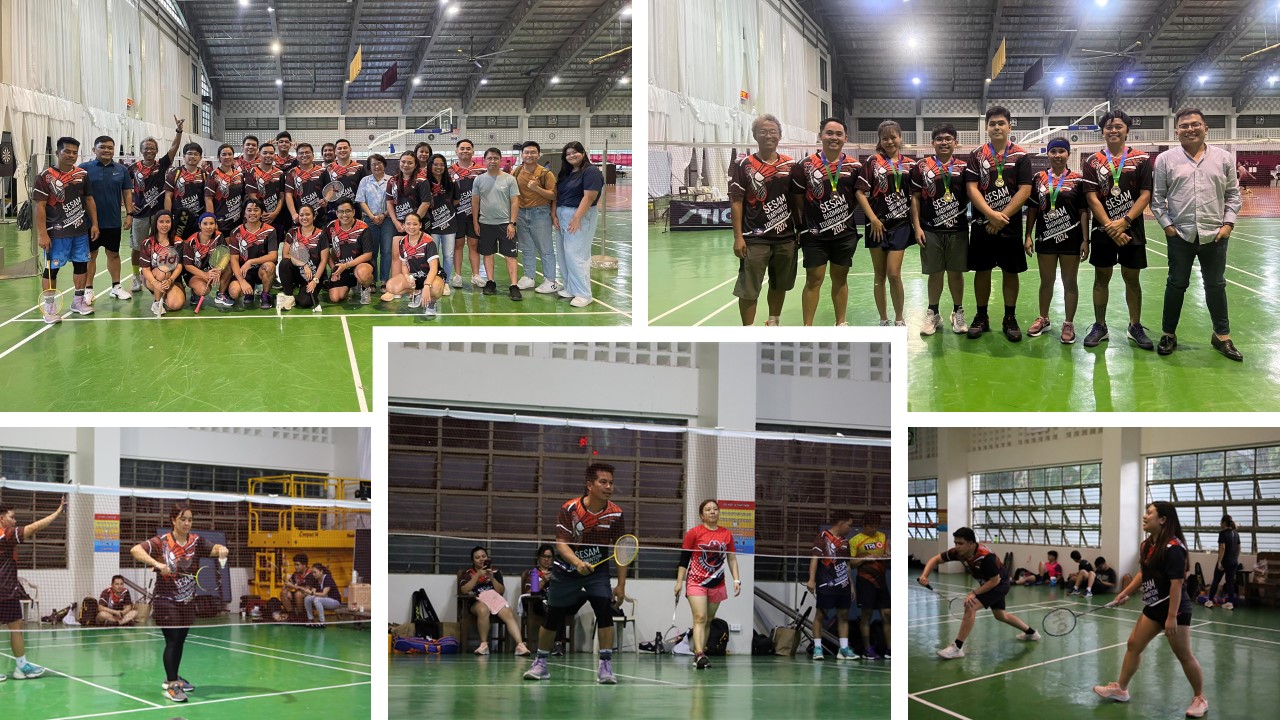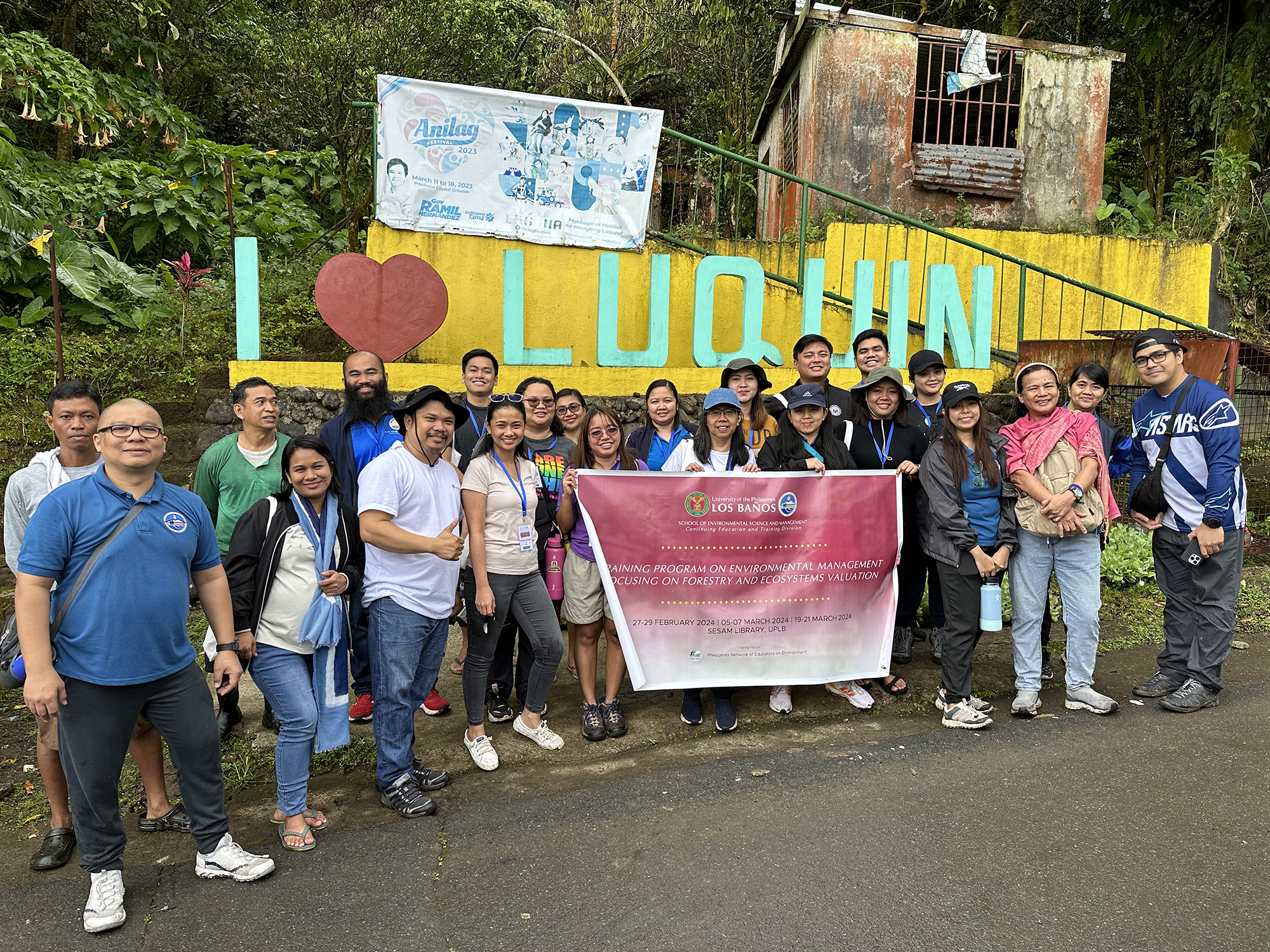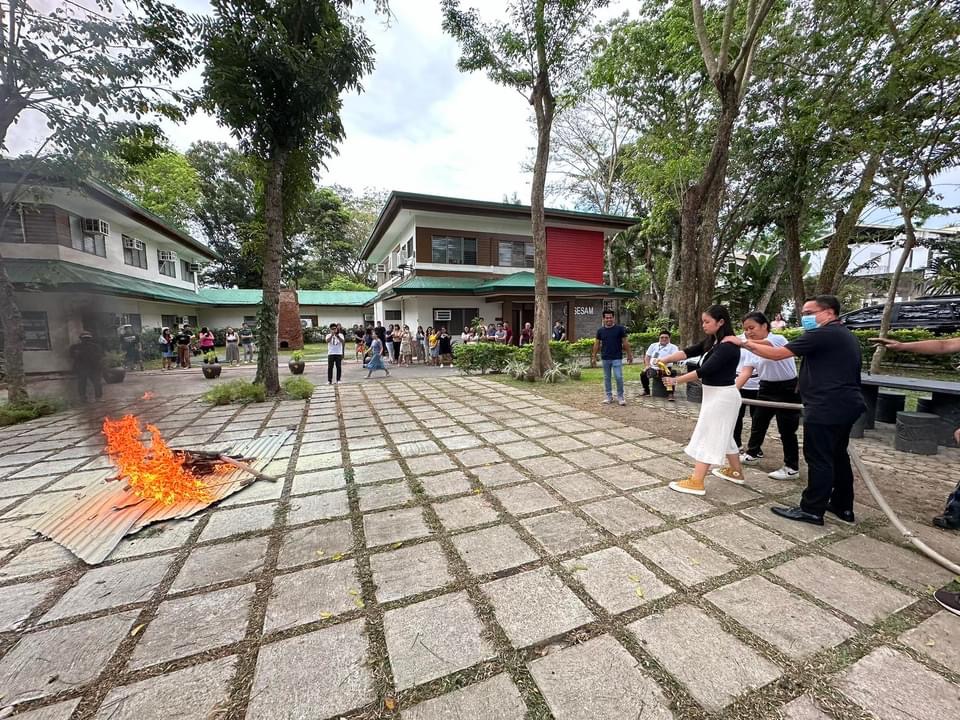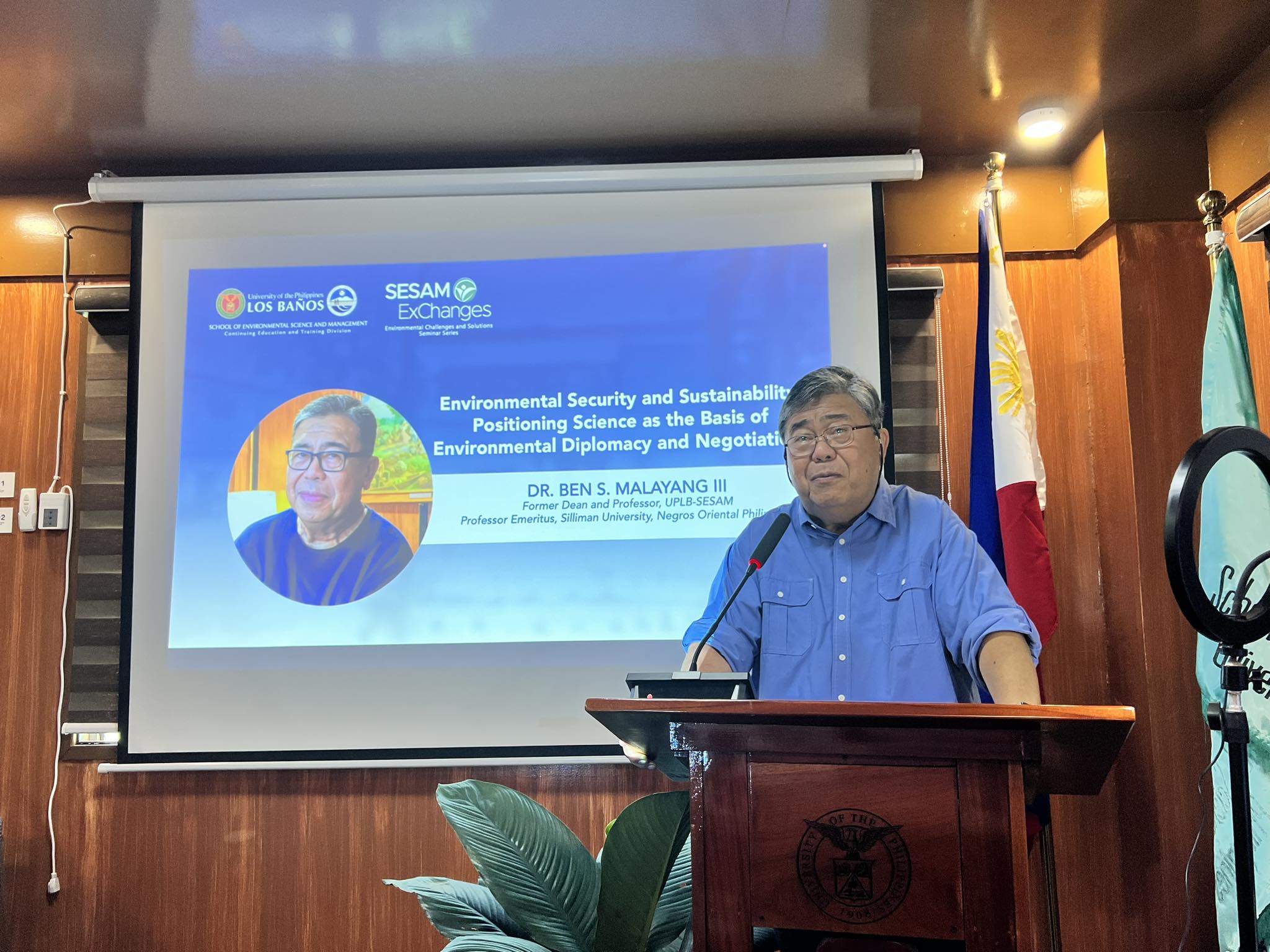This was one of the policy recommendations mentioned by Congressman Edgar M. Chatto (Representative, 1st District of Bohol) during the 12th SESAM ExChanges webinar last April 11, 2024, via Zoom and Facebook Live. This is in light of the issue of the closure of Captain’s Peak Resort in the UNESCO World Heritage site Chocolate Hills, Sagbayan, Bohol.
SESAM ExChanges is an environmental challenges and solutions seminar series organized by the Continuing Education and Training Division (CETD) of the School of Environmental Science and Management-University of the Philippines Los Baños (SESAM-UPLB).
The Chocolate Hill Natural Monument (CHNM) is declared as the third national geological monument in the country, while the island of Bohol is the first ever United Nation Education, Scientific and Cultural Organization (UNESCO) Global Geopark. CHNM is also a protected area under the National Integrated Protected Area System (NIPAS) Law.
Dr. Rico C. Ancog, Dean, SESAM, said in his opening speech that he is encouraging everyone to look for solutions and emphasize the importance of the theory and practice in relation to environmental resources. “As a center of excellence in environmental science education in the country, SESAM would like to really emphasize the importance of having rationale and meaningful discussion,” said Dr. Ancog.
Dr. Jose V. Camacho, Jr., Chancellor UPLB, congratulated SESAM for hosting a webinar on the Chocolate Hills issue which aims to discuss current and emerging environmental issues with local, national and international relevance. “Indeed, this is cross-cutting in the policies and management of natural resources, the programs, technological breakthroughs and the policy recommendations as a basis in moving forward,” Chancellor Camacho said.
Congressman Chatto, the Chair of House Committee of Climate Change, said the issue right now surrounding Chocolate Hills throws the question “as between a private right to own and use a property versus the state’s obligation to preserve its protected areas, which should prevail?”
However, Congressman Chatto said before answering that question, he mentioned the following points: “first, the preservation and protection of the environment is non-negotiable; second, an investigation must be conducted following the principles of transparency, due process and accountability; and third, the resolution must necessarily involve policy reviews,” Rep. Chatto stressed.
A UP School of Economics alumni and an attorney by profession, Congressman Chatto said it is sad that Bohol is in the limelight for the wrong reasons. “Captain’s Peak Resort is not the only business operating within the Chocolate Hills National Monument and the Chocolate Hills National Monument is not the only protected area in the Philippines with business ventures constructed within it,” Congressman Chatto said. He added that there are many policy gaps that must be addressed, such as to clearly define the boundaries of what exactly to be included as protected area, and areas not worthy of protection must be excluded and reverted back to its previous classification.
Usec. Jonas R. Leones, Undersecretary for Policy, Planning and International Affairs of the Department of Environment and Natural Resources (DENR) said that protected areas serve as vital sanctuaries that support the web of life that consists of a unique diversity of biological life and the land, air and water that sustains them. “Based on our implementation operation in the department, we believe protected areas as the forefront of biodiversity conservation,” Usec. Leones stressed.
A SESAM alumni and a lawyer by profession, Usec. Leones said DENR will now be using some technologies such as drone survey to facilitate faster inventory of all structures in CHNM and other PAs in Bohol and UNESCO Geopark. Since the current ratio is one forest ranger to 4,000 hectares, DENR will also seek funds from congress for hiring regular personnel to monitor PAs.
On the issue of adherence to the policy of securing Environmental Compliance Certificate (ECC) first before issuing local permits, Usec. Leones said that the DENR needs to emphasize to the local government for the need of an environmental assessment first before issuance of permits that are being required by the local government before the implementation of projects inside the PAs. He also reiterated that currently approval by the regional offices of all ECC applications for the projects within PAs is suspended until further notice.
For her part, Ms. Jovencia B. Ganub, EnP., head of the Bohol Provincial Environmental Management Office, said the UNESCO Geopark designation of the province is in line with their vision as a prime eco-cultural tourism destination and a strong, balance agro-industrial province. To sustain Bohols’ designation as a UNESCO Geopark, the provincial government created Executive Order 13, series of 2023, creating the for the planning and implementation of a unified Bohol environmental user’s fee payment system; and Executive Order 55, series of 2023, establishing the launching of Bohol: first regenerative island project.
“There is a need for the formulation of clear guidelines in relation to RA 11038 or the eNIPAS Act and its IRR including other related PA policies and guidelines,” as Ms. Ganub said, as she also reiterated the call of Congressman Chatto and supports the DENR regarding the review of policies covering PAs.
On a lighter note, Nestor M. Canda, Barangay Chairman, Poblacion Sur, Batuan, Bohol and former Provincial Environment and Natural Resources Office of Bohol, briefly told the legend behind the Chocolate Hills. He said the hills were created in the aftermath of a fight between two giants who spent days hurling stones at each other before finally giving up and agreed to become friends. Another myth of the Chocolate Hills Mr. Canda mentioned is that the hills are the tears of a youthful giant named “Arago” who is grieving the death of a mortal maiden named “Ayola” which he fell in love with.
In consultation with other barangay officials of their LGU, Mr. Canda suggested that there should be capacity building and provision of technical support in the field especially in the aspect of Global Geopark System approach in managing and protecting the CHNM. “There should also be a devolution of functions to the authorities of the local DENR office so as to ensure fast delivery of action or identifying lapses of decision-makers,” Mr. Canda added.
More than 700 participated in this webinar via Zoom and Facebook Live. Academe, LGUs, national government agencies, NGOs and private organizations from around the country were well-represented in 12thSESAM ExChanges.

